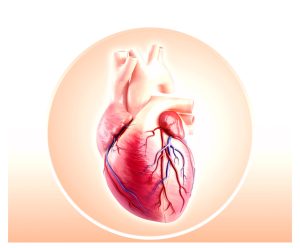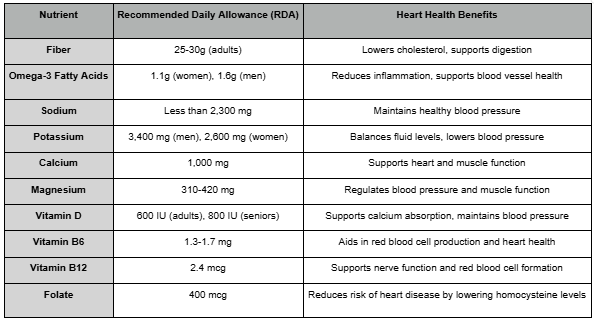By: Geraldus Sigap
Heart disease is one of the leading causes of death worldwide, affecting millions of people each year. While genetics and lifestyle factors such as smoking and physical activity play a role, diet is one of the most significant contributors to heart health. The foods consumed daily can either protect the heart or increase the risk of cardiovascular problems. Making smart dietary choices can help maintain healthy cholesterol levels, regulate blood pressure, and reduce inflammation, all of which are essential in preventing heart disease.

The heart relies on a steady supply of essential nutrients to function properly. A diet rich in healthy fats, fiber, vitamins, and minerals can strengthen the heart and lower the risk of developing heart disease. On the other hand, consuming too much saturated fat, processed foods, and added sugars can lead to high cholesterol, hypertension, and inflammation, all of which contribute to heart problems.
Choose Heart-Healthy Fats
Not all fats are harmful. In fact, some types of fat are essential for maintaining good heart health. Unsaturated fats, found in foods like olive oil, avocados, nuts, and fatty fish, help lower bad cholesterol (LDL) and increase good cholesterol (HDL). Omega-3 fatty acids, which are abundant in salmon, sardines, and flaxseeds, reduce inflammation and decrease the risk of heart disease.
On the other hand, trans fats and excessive saturated fats should be avoided. Trans fats, commonly found in processed foods such as margarine, fried snacks, and packaged baked goods, increase cholesterol levels and raise the risk of heart disease. Saturated fats, present in red meat, butter, and full-fat dairy, should be consumed in moderation to maintain a balanced diet.
Increase Fiber Intake for a Stronger Heart
Fiber plays a crucial role in maintaining heart health by reducing cholesterol levels and supporting digestion. Soluble fiber, found in oats, beans, lentils, and fruits like apples and berries, binds to cholesterol and removes it from the body before it enters the bloodstream. This helps lower overall cholesterol levels and reduces the risk of arterial blockages.
Whole grains such as brown rice, quinoa, and whole wheat bread are also excellent sources of fiber. These foods promote stable blood sugar levels and improve overall cardiovascular health. By replacing refined carbohydrates with fiber-rich foods, the heart receives better protection against disease.
Reduce Salt and Sugar Consumption
Excessive salt and sugar intake can have harmful effects on the heart. High sodium levels contribute to high blood pressure, which increases the risk of stroke and heart attack. Processed and packaged foods, including canned soups, fast food, and deli meats, often contain high amounts of sodium. Choosing fresh ingredients and seasoning meals with herbs and spices instead of salt can help maintain healthy blood pressure levels.
Sugar, particularly refined sugar found in soft drinks, sweets, and pastries, contributes to weight gain and increases the risk of diabetes, which is closely linked to heart disease. Consuming natural sugars from fruits and limiting added sugars in beverages and processed foods can help reduce these risks.
The Importance of Fruits and Vegetables
Fruits and vegetables are packed with antioxidants, vitamins, and minerals that protect the heart. Leafy greens like spinach, kale, and Swiss chard are rich in potassium, which helps regulate blood pressure by counteracting the effects of sodium. Berries contain antioxidants that reduce inflammation and prevent oxidative stress, both of which are risk factors for heart disease.
Citrus fruits such as oranges and grapefruits provide vitamin C, which strengthens blood vessels and improves circulation. Including a variety of colorful fruits and vegetables in daily meals ensures that the body receives the necessary nutrients to support heart health.
Stay Hydrated for Better Circulation
Proper hydration is essential for maintaining good heart function. Water helps the blood flow smoothly, preventing thickening that can lead to clot formation. Dehydration can strain the heart, making it work harder to pump blood throughout the body. Drinking sufficient water each day, along with consuming hydrating foods such as cucumbers, watermelon, and celery, helps support cardiovascular health.
Balanced Eating Habits for Long-Term Health
Adopting a heart-healthy diet is not about strict restrictions but rather about making balanced choices. Portion control is an important aspect of maintaining a healthy weight and preventing overeating. Eating smaller meals more frequently can help regulate metabolism and prevent sudden spikes in blood sugar levels.
Mindful eating, which involves paying attention to hunger and fullness cues, can also prevent unnecessary calorie intake. Avoiding distractions such as television or electronic devices while eating allows for better awareness of food choices and portion sizes.

A summary table for the recommended daily allowance intake for the nutrient

At RS Abdi Waluyo, expert nutritionists provide personalized dietary guidance to support heart health. With a deep understanding of how nutrition affects cardiovascular function, they create customized meal plans tailored to individual needs. Whether managing high blood pressure, cholesterol, or weight-related concerns, the nutrition specialists at RS Abdi Waluyo help patients make informed choices that promote a healthier heart.
Resources
- Heart Disease and Nutrition | Cardiovascular Care at RWJBarnabas Health NJ [Homepage on the Internet]. [cited 2025 Feb 4];Available from: https://www.rwjbh.org/treatment-care/heart-and-vascular-care/heart-disease-prevention/heart-disease-and-nutrition/
- Heart-healthy diet: 8 steps to prevent heart disease – Mayo Clinic [Homepage on the Internet]. [cited 2025 Feb 4];Available from: https://www.mayoclinic.org/diseases-conditions/heart-disease/in-depth/heart-healthy-diet/art-20047702
- Heart healthy eating pattern | Heart Foundation [Homepage on the Internet]. [cited 2025 Feb 4];Available from: https://www.heartfoundation.org.au/healthy-living/healthy-eating/heart-healthy-eating-pattern
